Practical information for visiting Vung Tau - Nui Dat and Long Tan
Since some of the areas aren't marked and aren't terribly easy to locate, it's a good idea to take a tour to Nui Dat / Long Tan. Permission from local authorities is required to visit the site.
SPECIAL NOTE
As of 2017, formal ceremonies are no longer permitted at Long Tan on ANZAC Day or other occasions. Private visits are still welcome.
Companies based in Vung Tau have years of experience in leading Australian travellers through the area. Many guides have detailed knowledge of the area - though perhaps not the intricate knowledge of battles and the political aspects of the conflict.
The day trip from Saigon to Vung Tau is best done by taking the early 90 minute hydrofoil from the downtown port (Ton Duc Thang St opposite Nguyen Hue St). The Russian made hydrofoils operating the route resemble seaborne Tupolovs and inspire about the same level of confidence.
The journey costs 200,000 VND and is easy, interesting and perfectly comfortable for a short ride. Services operate every 30 minutes during the day.
If you've prearranged a tour, you'll be met at the ferry wharf in Vung Tau by your guide and driver. There are enough things to see around Vung Tau to spend half a day here so if time permits.
Add a night in Vung Tau either at the beginning or end of your tour. It's a nice contrast to the pace of Saigon.
I toured Nui Dat and Long Tan with OSC Travel Vung Tau. Their details are listed below.
OSC Việt Nam Travel
Vung Tau Office:
Add: 02 Le Loi Str, Ward 1, Vung Tau City
Tel: +84 64 3852 008 / Fax: +84 64 3852 318
Ba Ria Branch:
52 Nguyen Tat Thanh Str, Phuoc Trung Ward, Ba Ria City
Tel: +84 64 3712 116 / Fax: +84 64 3712 117
Email: osc-tours@hcm.vnn.vn
Website: www.oscvietnamtravel.com
NB. Rusty Compass has no affiliation with this company and paid full fees for the tour.
Nui Dat, Long Tan - remnants of Australia's Vietnam War presence
History and background
The Vietnam War was Australia's longest war, running from 1962 until the withdrawal of the last troops by the Whitlam Government in 1973. It was also the most controversial war Australia has participated in - dividing the nation and igniting a huge protest movement.
Around 60,000 Australians served in Vietnam, more than 500 died and 3,000 were wounded. Many veterans suffered illness and trauma in the decades following their deployment. The stigma of fighting in an unpopular war also weighed heavily.
The scale of Australia's wartime presence in Vietnam was modest compared to that of the US. US troop numbers peaked in 1968 at more than 500,000 men on the ground.
Around 60,000 Australians served in Vietnam and more than 500 died.
Nui Dat
Nui Dat was the base for the 1st ATF (Australian Task Force) and was the centre for Australia's campaign to rout Viet Cong forces in Phuoc Tuy Province (Phuoc Tuy Province no longer exists).
Nui Dat base was operational from 1966 until 1971. At its peak, it was home to around 5000 Australian service personnel.
Fragments of the air strip still exist as do parts of the entrance gate. It's also possible to look across the entire area by climbing Nui Dat hill.
Long Tan
The Battle of Long Tan is remembered as the deadliest battle of the Vietnam War for Australian troops and as a decisive victory against a much larger Viet Cong and North Vietnamese force.
It occurred in an old rubber plantation around 5 kilometres from the Nui Dat base on August 18 1966 when a force of 108 men from the 6 Royal Australian Regiment's (6RAR) D Company encountered a mixed Viet Cong and North Vietnamese Army force estimated at between 1500 and 2500.
Nui Dat base had only been in operation for a few months at the time and communist forces were intent on its elimination.
18 Australians and an estimated 200+ communist forces were killed in the battle that took place in terrible weather.
In the years after the battle, Australian troops erected a cross in the rubber plantation to commemorate those lost. A replica of the cross now stands at the site of the battle.
The original Long Tan Cross is presently on loan to the Australian War Memorial in Canberra until April 2013.
Long Phuoc Tunnels, the Horseshoe, Long Hai hills
Long Phuoc was a town close by the Nui Dat base that was considered VC controlled. It was evacuated and destroyed by Australian soldiers in 1966.
A tunnel network remained that enabled VC forces to continue to operate against the Australians.
The tunnels have been expanded to enable western travellers to visit.
Mr Tan, the caretaker, is a jovial former VC fighter.
The hill known as the Horseshoe is located on the road between Long Tan and the Long Hai hills. It was an artillery base intended to protect Nui Dat from attack from the Viet Cong controlled Long Hai hills.
A vast mine field 11 kilometres in length was created between the Horseshoe and Long Hai to create a buffer between the Australian base at Nui Dat and the Long Hai hills. But over time, Viet Cong forces began to locate the mines and use them against Australian forces. The minefield was ultimately determined to be more hazard than help and was removed.
The Horseshoe is now a being quarried so there is no access for visitors. It's clearly visible from the main road between Nui Dat and Long Tan.
The Long Hai Hills run along the coast south of Nui Dat. A major Viet Cong base during the war known as the Minh Dam Secret Zone was located in the hills. The area was deadly for Australian servicemen. It's possible to visit the old Minh Dam Secret Zone. There's a memorial at the site.

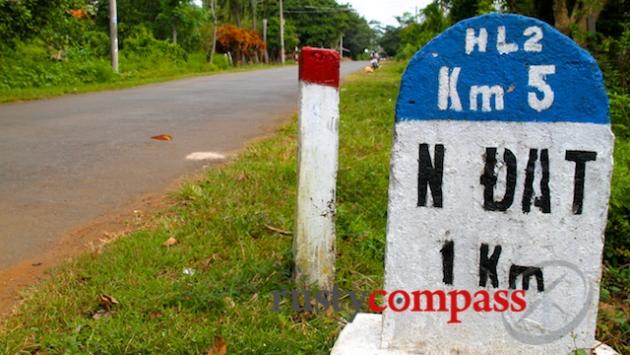
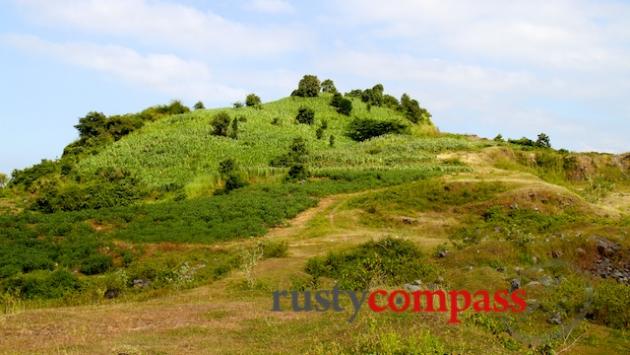

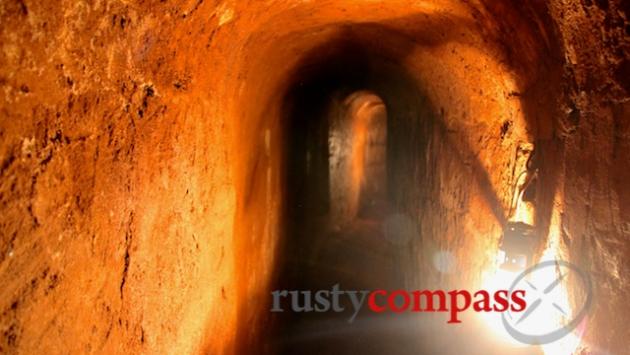
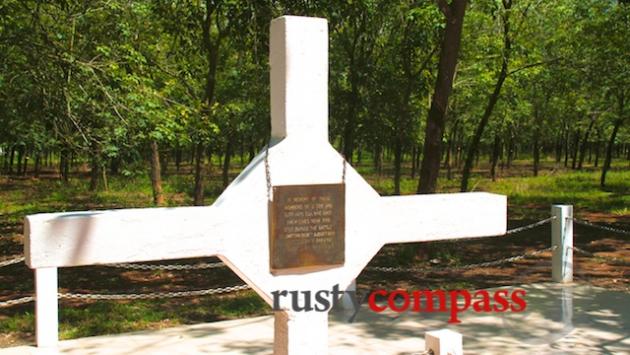
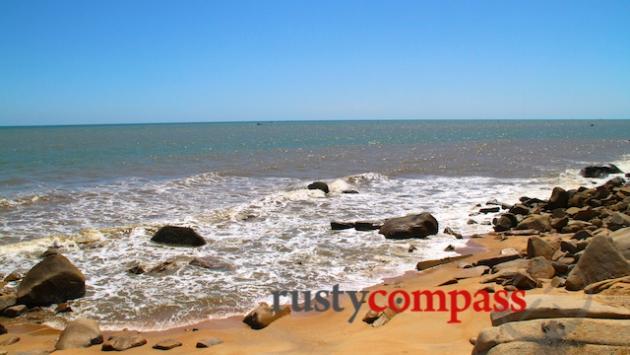





There are no comments yet.